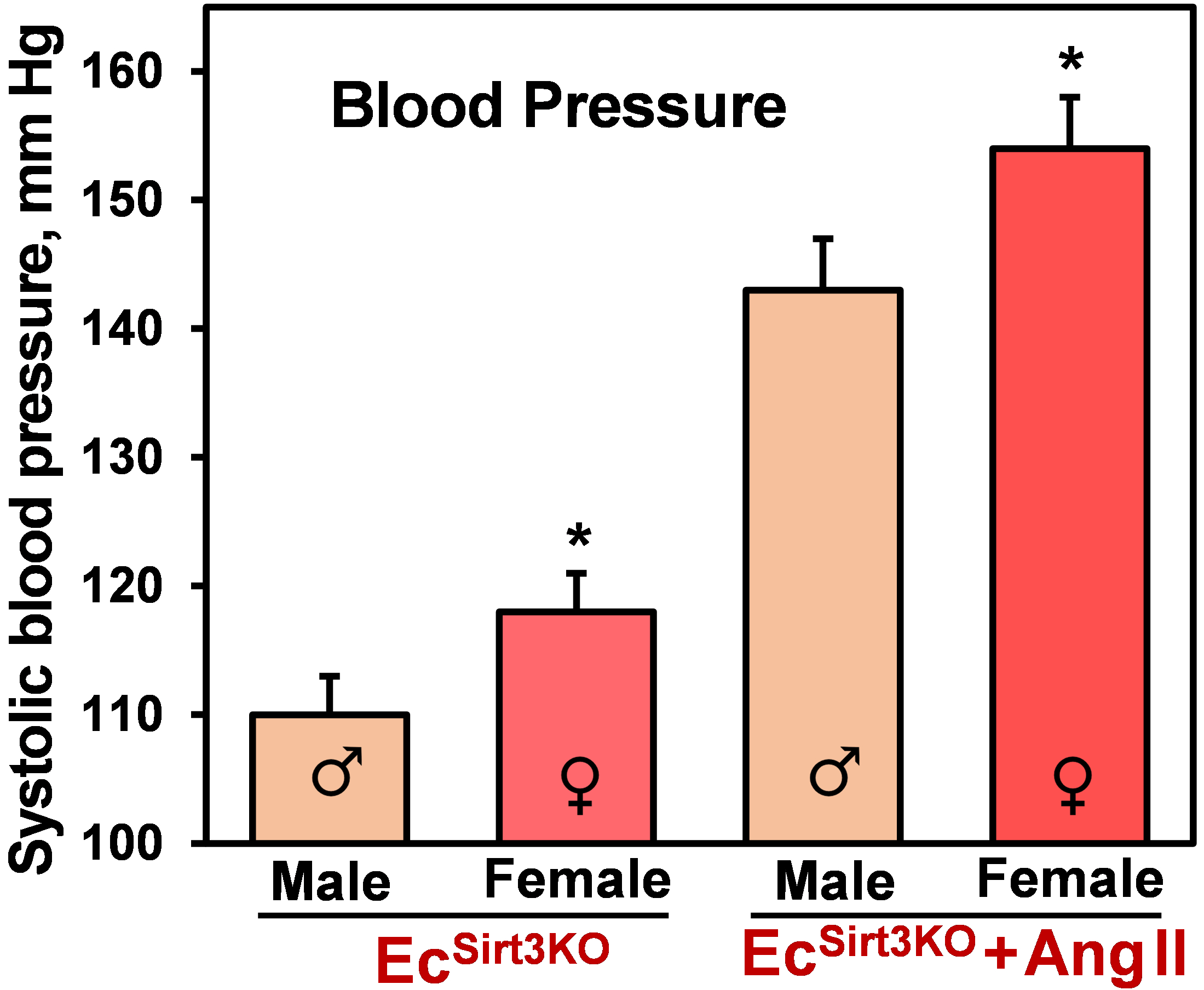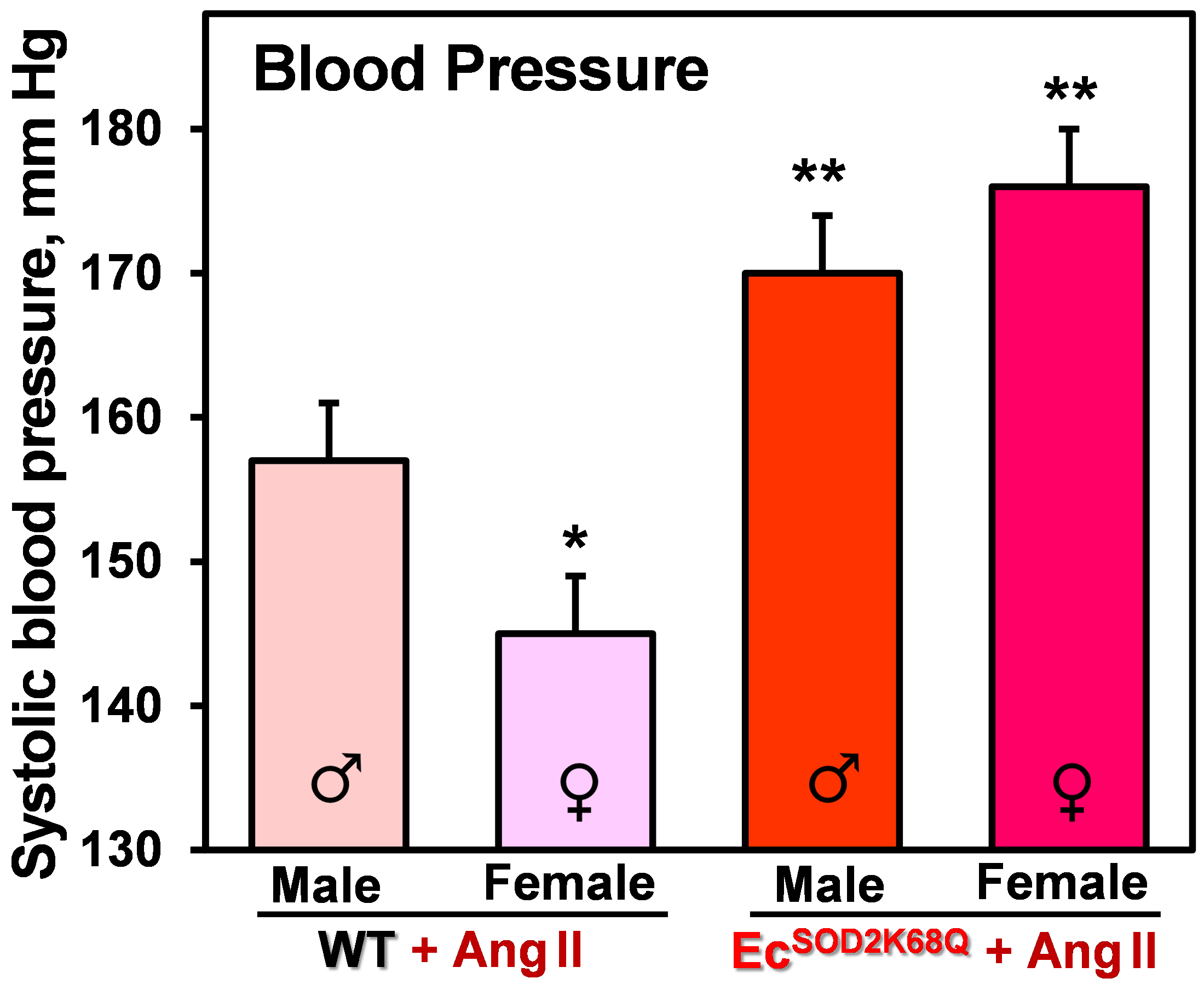Final ID: P-354
Endothelial Sirt3 deficiency and SOD2 acetylation voids female protection from hypertension
Abstract Body: The prevalence of hypertension in early adulthood among women is 3-times lower than in men; but with aging hypertension rate increases in women much steeper, and hypertensive vascular and kidney damage is significantly higher in women. Gender-specific aspects of hypertension are poorly understood and clinical studies did not show protection by estrogen hormone therapy. We found that human hypertension is linked to hyperacetylation of critical antioxidant and metabolic mitochondrial enzymes superoxide dismutase (SOD2) and long-chain acyl dehydrogenase (LCAD) due to vascular deficiency of mitochondrial deacetylase Sirt3. We hypothesized that endothelial Sirt3 depletion leads to the loss of female protective cardiovascular phenotype and exacerbates hypertension in female compared with male mice due to hyperacetylation of mitochondrial proteins. Indeed, infusion of angiotensin II in wild-type female mice showed protection of vascular metabolism, endothelial nitric oxide and lower blood pressure compared with male littermates which was coupled with reduced acetylation of mitochondrial LCAD and SOD2 in female mice. Endothelial specific Sirt3 knockout female mice showed increased mitochondrial acetylation, exacerbated angiotensin II-induced hypertension and higher blood pressure compared with male mice which models human hypertension. Hypertension is linked to SOD2 acetylation (Circ Res. 2020;126(4):439-452) which leads to SOD2 inactivation and vascular oxidative stress. We found that endothelial specific acetylation mimetic SOD2-K68Q knock-in female mice lost antihypertensive phenotype and had higher blood pressure compared with angiotensin II-infused male mice. These studies demonstrate critical role of mitochondrial acetylation in endothelial dysfunction and hypertension suggesting that female antihypertensive phenotype can be associated with reduced mitochondrial acetylation protecting mitochondrial and endothelial functions. It is conceivable that pharmacological targeting of mitochondrial metabolism and acetylation can rescue female cardiovascular protection and improve treatment of endothelial dysfunction and hypertension.
More abstracts on this topic:
A KLF2-BMPER-Smad1/5 checkpoint regulates high fluid shear stress-mediated artery remodeling
Deng Hanqiang, Zhang Jiasheng, Schwartz Martin
2 Dimensional Echocardiography versus 3 Dimentional Echocardiography to Assess Right Ventricular Function in Pulmonary Hypertension: A Systematic ReviewChaudhry Waleed Razzaq, Hajj Fatima, Bathula Satyamedha, Meghji Mohammed Askari, Pasupuleti Hemalatha, Kiyani Madiha, Shah Syeda Simrah, Neelakantan Ramaswamy Sanathanan, Mirzaeidizaji Nakisa, St. Jacques Jahnoy, Khan Khalil Ullah, Veluchamy Elakkiya, Jesse Joshanna


